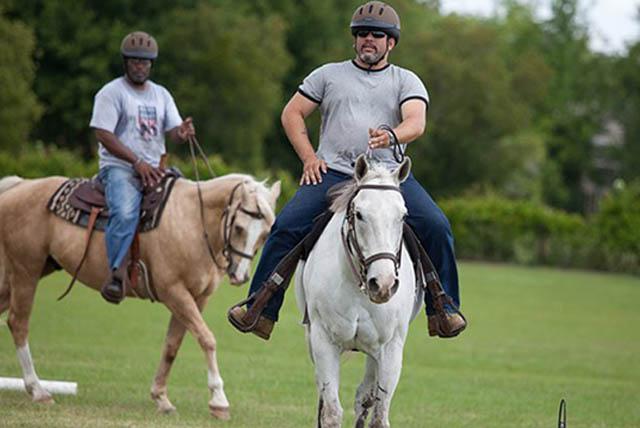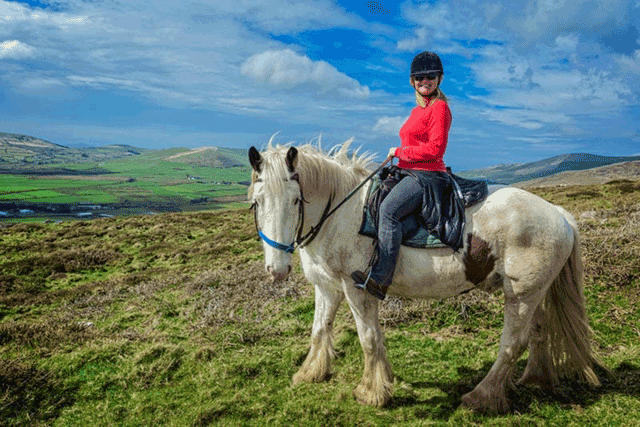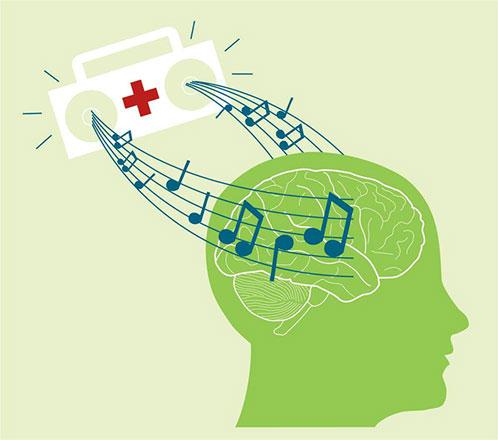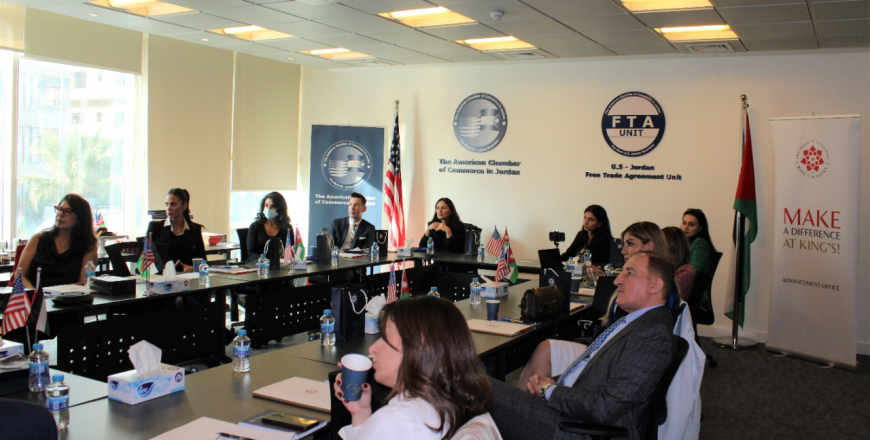You are here
Long-term stroke survivors believe they do better with horse, music therapy
By Reuters - Jun 20,2017 - Last updated at Jun 20,2017

Photo courtesy of everydayhealth.com
A small Swedish study of stroke patients finds that activities such as horseback riding and rhythm-and-music therapy can help them feel like they are recovering faster, even if their stroke occurred years earlier.
After 12 weeks of twice-weekly lessons, 56 per cent in the riding group and 38 per cent in the music group said they had experienced meaningful recovery compared to 17 per cent who were not given any extra activity. The self-reported benefit persisted six months after the lessons stopped.
Co-author Dr Michael Nilsson told Reuters Health by phone that the results counter the attitude that stroke patients can’t improve if a year has passed since their brain damage occurred.
“For a big, big, big group of stroke survivors, it’s highly unethical to say nothing can be done after 12 months,” said Nilsson, who directs the Hunter Medical Research Institute in New South Wales, Australia. That attitude can “kill the motivation for further rehabilitation”.
The findings are “interesting from a variety of standpoints,” said Dr Daniel Lackland, a professor of epidemiology and neurology at the Medical University of South Carolina in Charleston, who was not involved in the study.
“Most stroke recovery research seems to take place in the acute phase,” he told Reuters Health in a phone interview. “This is doing it at a later phase, which is very much needed.”
On average, the 123 Swedish volunteers started the study nearly three years after suffering their stroke.
The Nilsson team, writing in the journal Stroke, speculated that the physical and social aspects of riding or moving to the music were responsible for the improvements. However, it did not compare them to patients who were given other types of extra attention, such as twice-weekly group outings.
In addition, the study measured how the patients thought their rehabilitation was progressing, not how well they scored on more objective tests designed to measure their improvement.
Such tests of gait, balance, hand strength and memory sometimes did not show enough consistent benefit to rule out the possibility it was due to chance.
Nilsson said self-reported improvement was the point of the test. “We wanted their opinion” because positive self-perception “is the key for long term improvement. It is getting the patients engaged and motivated to participate, and to do that in an intense way.
“Why? We must understand that you need to be prepared to invest in training and rehabilitation over a long period of time to relearn and learn in new ways to master your disability,” Nilsson said.
The interventions were done on patients who were moderately debilitated. All could walk, use transportation services for the disabled and use the toilet without assistance.
Horseback riding sessions — which lasted four hours and included special exercises, grooming, equipping the therapy horse and 30 minutes of sitting on the horse as it was being led — produced an immediate jump in perceived improvement.
It was not until three months after the end of music therapy — where people were asked to move their hands and feet in time with the music in sessions lasting 90 minutes — that patients showed a comparable improvement in how they thought their recovery was going.
But when it came to more objective measures, the benefits were less clear.
Horseback riding produced immediate and significant improvements in gait and balance in all three tests used by the researchers, but by the sixth month of follow-up, only one of the three tests was still showing better performance. In the rhythm-and-music group, only one of the three tests showed a benefit, either immediately or at the six-month follow-up point.
Although limited, the data might help doctors tease out the best types of activities for retraining the brain, Lackland said.
Nilsson, who is also a professor at the University of Newcastle in Australia and University of Gothenburg in Sweden said a larger follow-up study is being planned to confirm the findings. The results are also being analysed to see if the time elapsed since the stroke influenced how well individual patients did.
Related Articles
WASHINGTON — Who were the first people to ride horses?Researchers believe they have found the earliest evidence of horseback riding, by the
Traditional depression treatments like psychotherapy or medication might work better for some patients when doctors add a dose of musi
AMMAN – The American Chamber of Commerce in Jordan (AmCham-Jordan), in collaboration with King’s Academy, recently held a session titled “Me


















